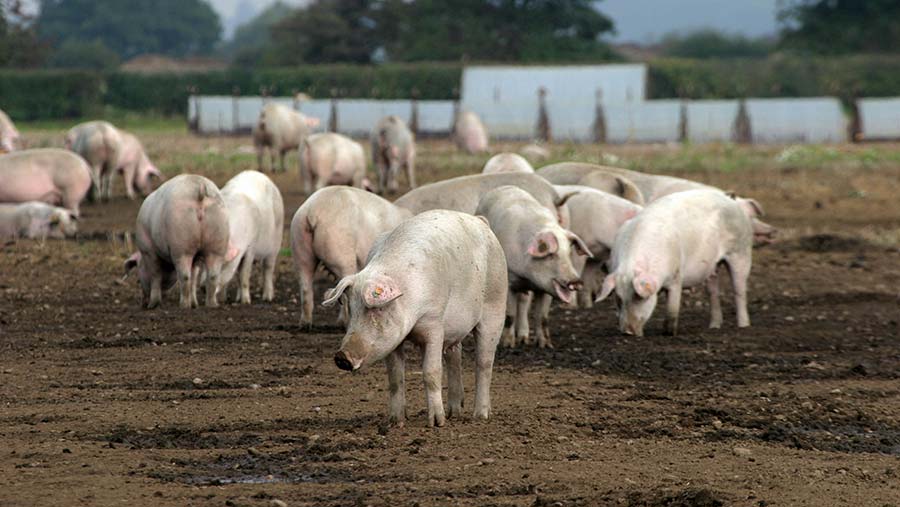Consultation into pig supply chain fairness closes soon
 © Tim Scrivener
© Tim Scrivener Pig sector leaders have urged producers to have their say on the pork supply chain before a Defra consultation comes to an end.
Launched in July, the consultation will close on 7 October. Defra’s aim is to gather as much information about pig sector contracts and claims of a lack of transparency between producers and processors.
It will then use evidence supplied to review the sector and help it develop measures that could create a fairer supply chain.
See also: Anger and frustration’ as RPA forced to repay penalties
National Pig Association (NPA) officials underlined the importance of the consultation as an opportunity to press for change.
The NPA has already held focus groups on the issue and spoken to individual farmers for their views. But it urged as many producers as possible to respond individually to build a more powerful case.
“The consultation is seeking views on current contractual arrangements and what changes could be made,” a spokesman said.
There are 44 questions, covering:
- Transparency
- Price reporting
- Market consolidation
- Clarity of contractual terms and conditions
NPA chief executive Lizzie Wilson said the supply chain was broken and the review offered a chance to fix it.
“The chain has stopped functioning to serve and sustain each link within,” Ms Wilson said.
“Risk and reward are not proportionately distributed and we cannot continue like this. This review is an extraordinary opportunity for the pig sector, which we absolutely cannot waste.”
Adding to the call for grassroots information, Ms Wilson added: “We need as representative a response as possible, and as many voices falling in behind us to ram a collective message home, loud and clear.
“We have battled and battled for government to listen to us on this, so it’s now up to us to answer. Otherwise there will be no change to the status quo and we won’t be forgiven by those who gave us the chance.”
Ms Wilson said that even working through the yes/no boxes in the review to build a picture of a business and its relations with customers would be “immensely valuable”.
Grocery code adjudicator consultation
In a separate exercise, the groceries code adjudicator (GCA) consultation is taking evidence on the effectiveness of the role and whether it could be redefined or scrapped. It is due to close on 11 October.
The GCA was established in 2013 to monitor fair practice in the food supply chain between retailers and suppliers. It faces periodic statutory reviews to establish whether it is fulfilling its remit.
Previous reviews have considered transferring the GCA’s functions wholly into the Competitions and Markets Authority (CMA), which already oversees its operations.
But there was not enough evidence to suggest transferring the GCA’s functions would increase the effectiveness of public functions or accountability to ministers. However, government officials want to revisit the issue in the latest review covering the period from 2019-22.
Speaking at the launch of the consultation, NFU chief food business adviser Amy Fry highlighted the importance of the GCA to farmers.
“The GCA role is incredibly valuable to the food supply chain. It holds retailers to account and allows farmers and growers to highlight breaches of the Groceries Supply Code of Practice without fear of repercussion.”
And Dan Crossley, executive director of the Food Ethics Council, added: “Scrapping the GCA now would be a huge own goal for the UK’s food retail sector.
“With rampant inflation putting even more pressure on the already tumultuous retailer-supplier relationship, now would be the worst time to end the GCA.
“We should be doing the opposite and instead consider expanding its remit, so it can make meaningful interventions that make food fairer for everyone.”
How to respond
Responses can be made through the government website or by email. Postal responses should be sent to: GCA Review Team, Consumer and Competition, Department for Business, Energy and Industrial Strategy, 4th Floor, Victoria 2, 1 Victoria Street, London SW1H 0ET.
